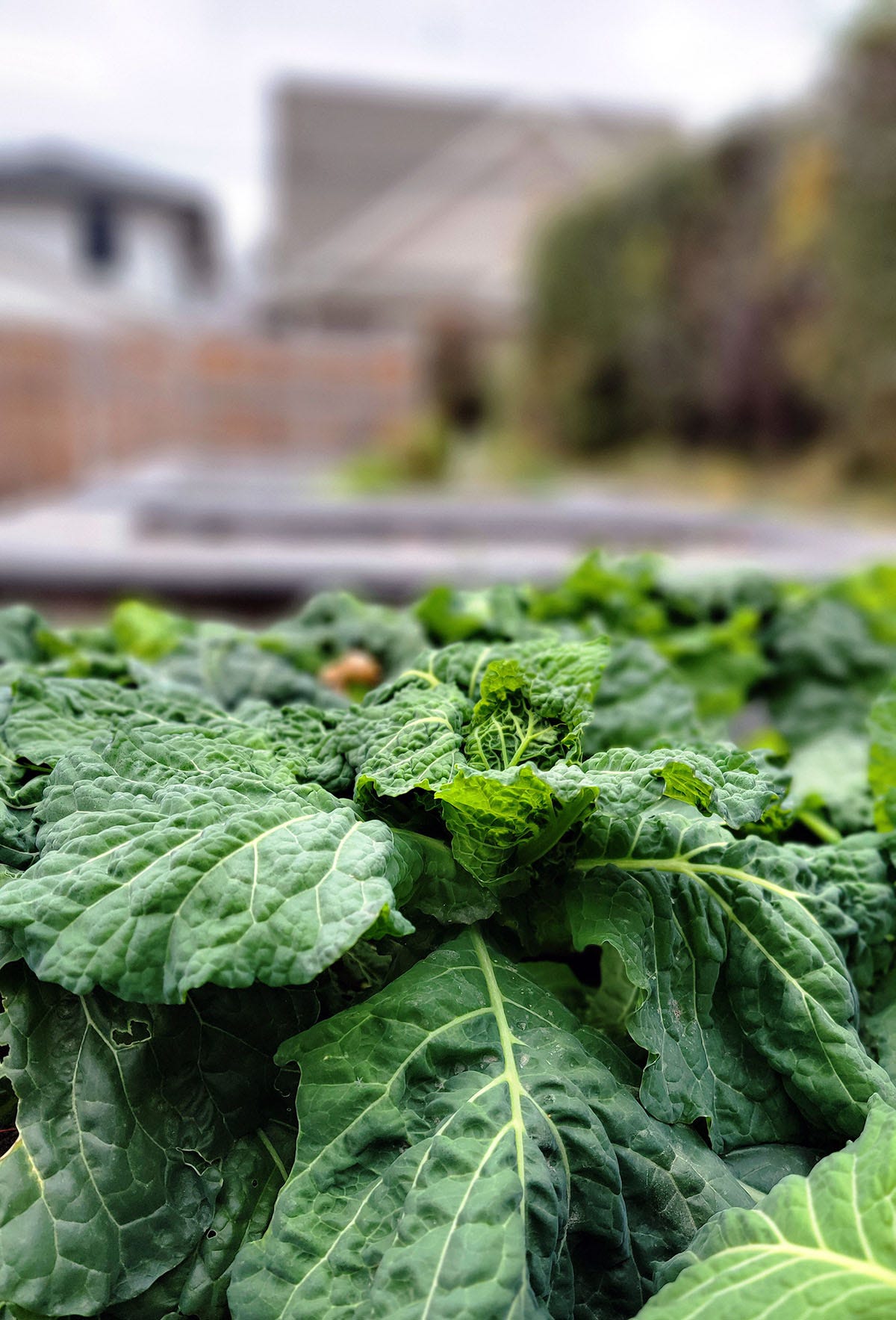Garden Lessons
Reflections on a long, bountiful season
Wisps of snow float down on my largely barren garden beds. Winter savory soldiers on, surrounded by its dying summertime companions: parsley, cilantro, chervil. A few savoy cabbages are enduring the hard frosts, but I reckon they’ll never head up. Oh well. Lesson learned.
Gardening teaches us a great many things. For every predictable harvest, there is …


